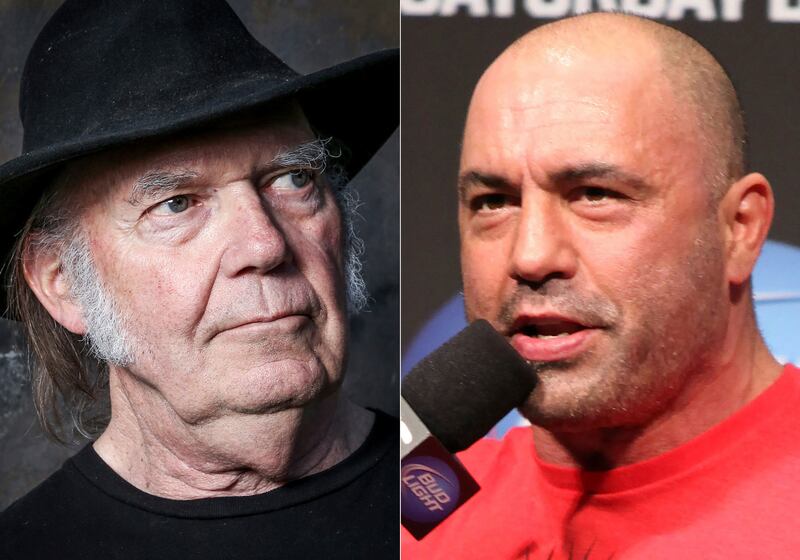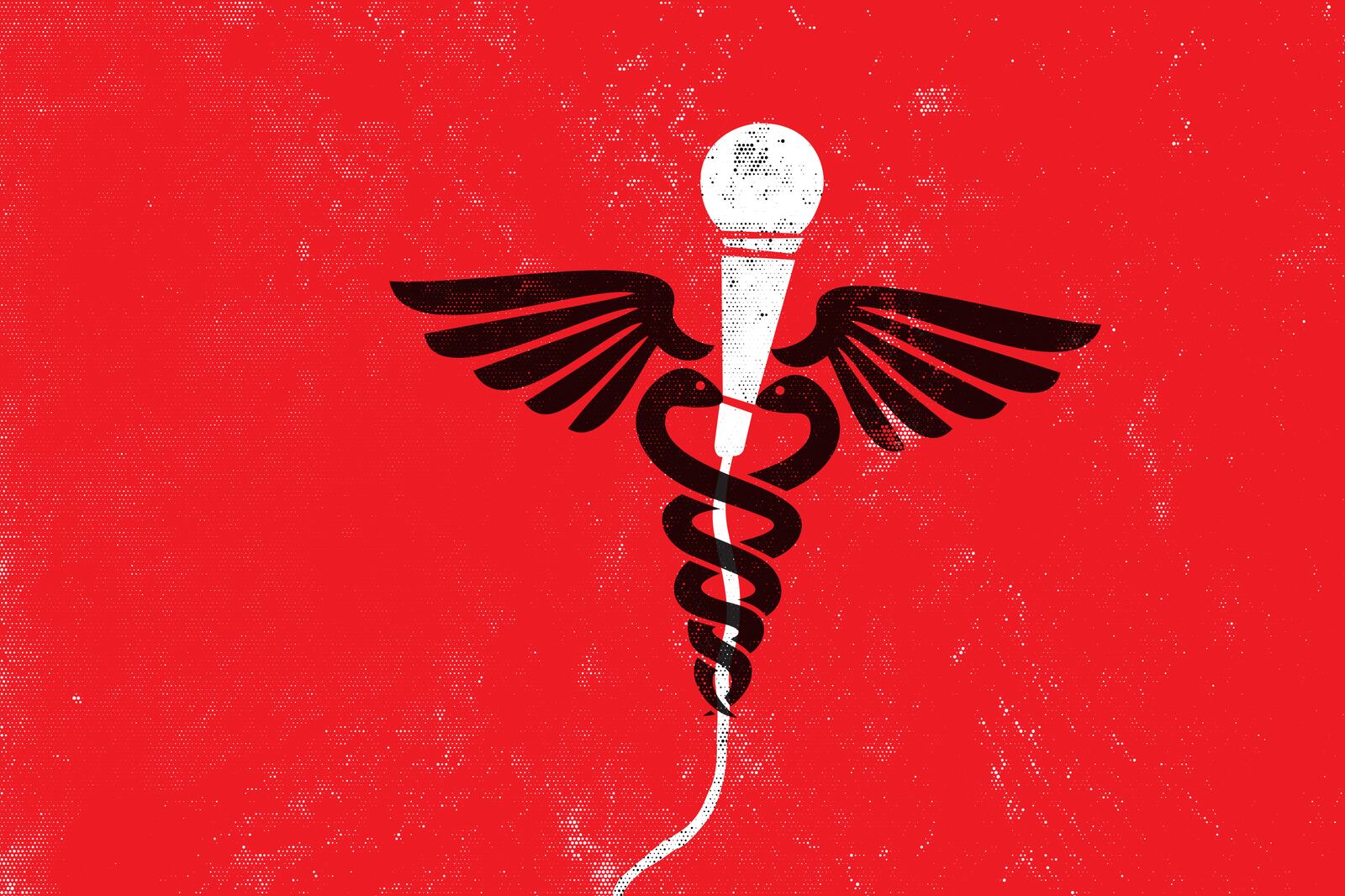Joe Rogan finally weighed in on the controversy swirling around his podcast on Spotify. Uncharacteristically, what he said was not especially controversial.
In a video posted on Instagram, Rogan pushed back against charges that his show spreads “dangerous misinformation,” saying that he simply gives a platform to people whose take is “different from the mainstream.” But he also apologized to Neil Young and Joni Mitchell, singers who have pulled their music from Spotify to protest Rogan’s presence there, and he pledged in the future to offer listeners opposing viewpoints when guests express controversial views.
“I’m not a doctor; I’m not a scientist. I’m just a person who sits down and talks to people and has conversations with them. Do I get things wrong? Absolutely, I get things wrong. But I try to correct them. ... I’m interested in telling the truth. I’m interested in finding out what the truth is.”
That sounds reasonable enough, and in promising to present both sides of a story, and to do more research in advance of his shows, Rogan appeared to be saying he would operate more like a journalist, less like a flamethrower. He expressed surprise at how “The Joe Rogan Experience” has taken off and called it a “strange responsibility” to have such an enormous platform.
This seemingly thoughtful response was described as “Joe Rogan caves and grovels” in the morning newsletter of James Golden, who became famous under the pseudonym “Bo Snerdley” on “The Rush Limbaugh Show.”
Golden linked to an article that said that Rogan had broken his silence “and also a few hearts” with his response. Some fans suggested that he was bowing to “the mob” by saying he was sorry if he made anyone angry.
But others pointed out that if Rogan caved, so did Spotify by keeping the show, though announcing Sunday that it would add a “content advisory” to any show that discussed COVID-19 and also promote an “information hub” that contains information about the coronavirus and vaccines.

So this is where we are today: Controversial podcaster plays nice. Controversy ensues, proving there’s no statement so benign that it can’t light up Twitter.
In fact, what happened between Rogan and Spotify seems to be what has been called a gentleman’s agreement in the past — an informal resolution that works to the benefit of both parties. Nobody got canceled. Everyone was polite. Money may or may not have been lost; there have been reports of Young and Mitchell taking a financial hit for what they consider a moral stance (even though Apple is trumpeting itself as the new home for Young’s music, and the value of the free publicity for all parties is incalculable). There’s also been reporting about Spotify’s value going down, little of which noted that the stock market was down across the board in January.
But the fact that “The Joe Rogan Experience” is exclusively on Spotify shows the worth of the comedian and former “Fear Factor” host to the service, which signed him in 2020 for a deal estimated in excess of $100 million. The New York Times has called Rogan “too big to cancel” and so far, there’s no evidence to suggest this claim was wrong. (Although some people have noted that Spotify might be more concerned if it was Taylor Swift threatening to pull her music.)
For now, though, an often crude, tattooed comedian who bills himself on Twitter as a “mixed martial arts fanatic/psychedelic adventurer” is overcoming an onslaught of derision and contempt and even getting some big names in media to suggest that maybe it’s worth pondering why Rogan is so popular.
Kevin Roose of The New York Times suggested Monday that either party could yet capitulate and said this might not be the end of the controversy, but a warm-up act.
To which Rogan might reply: Bring it, more free publicity.
Or, as he put it, ever so politely, in his video statement: “... (I)t’s good to have some haters. It makes you reassess what you’re doing and put things into perspective, and I think that’s good, too.”

